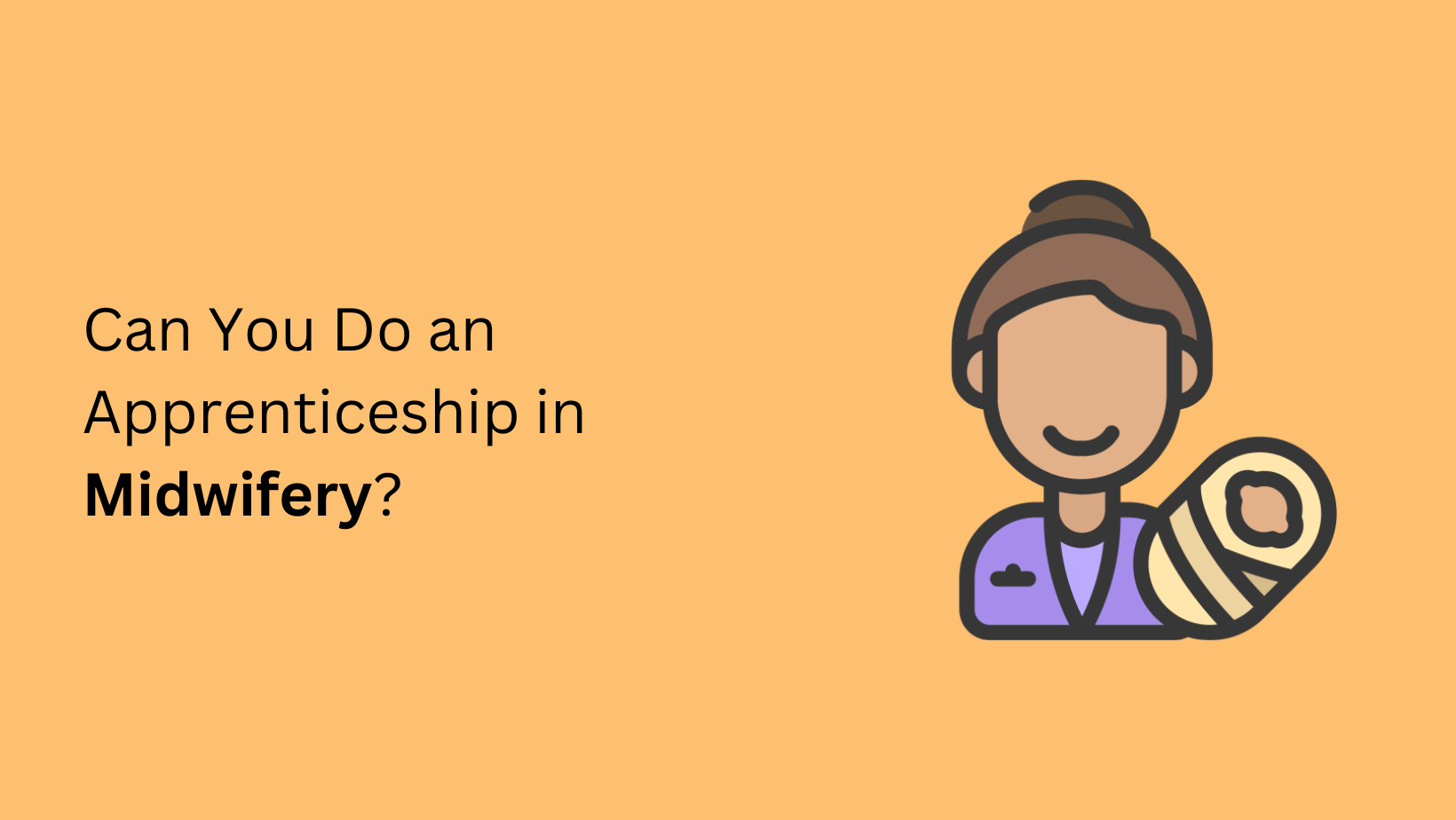Apprenticeships are an excellent way to gain practical skills and knowledge while earning a wage. However, you may wonder, “Can you do an apprenticeship in midwifery?”
If you’re passionate about helping others and are interested in supporting women during pregnancy and childbirth, a career in midwifery might be the right path for you.
In this article, we will delve into the details of midwifery apprenticeships, providing all the necessary information for those considering this fulfilling career option.

What is a Midwifery Apprenticeship?
A midwifery apprenticeship is an alternative route to becoming a registered midwife, allowing individuals to gain the necessary skills and qualifications through practical training and academic study. This apprenticeship program offers a hands-on learning experience, enabling apprentices to work alongside experienced midwives in various healthcare settings, including hospitals, birthing centres, and community clinics.
Entry Requirements
To embark on a midwifery apprenticeship, there are specific entry requirements that applicants must meet. These typically include:
- Academic Qualifications: A minimum of five GCSEs (or equivalent) at grade C/4 or above, including English, Mathematics, and a Science subject. Additionally, two or more A-levels (or equivalent qualifications) are often required, with preferred subjects including Biology, Chemistry, or Health and Social Care.
- Additional Requirements: Some apprenticeship providers may require applicants to undergo a Disclosure, and Barring Service (DBS) check to ensure their suitability for working with vulnerable individuals. Additionally, a health declaration and immunisation records may be requested to ensure the safety of the apprentice and the individuals they will be assisting.
Duration and Structure
Midwifery apprenticeships typically last three to four years, during which apprentices split their time between academic study and practical placements. The program is designed to provide apprentices with a comprehensive understanding of midwifery practice and equip them with the necessary skills to provide holistic care to women throughout pregnancy, childbirth, and postnatal.
Apprentices will attend a higher education institution, such as a university, where they will receive formal education in midwifery theory, anatomy and physiology, clinical skills, and evidence-based practice. Simultaneously, they will gain hands-on experience by working alongside qualified midwives in clinical settings, assisting with antenatal care, labour and delivery, postnatal care, and newborn assessments.
Support and Mentoring
Aspiring midwives receive support from academic tutors and experienced midwives throughout the apprenticeship. This mentorship ensures apprentices receive guidance, supervision, and regular assessments to monitor their progress and development. The mentorship relationship is invaluable, as it offers apprentices the opportunity to learn from experienced professionals and gain insights into the realities of the midwifery profession.
Progression and Registration
Upon successful completion of the midwifery apprenticeship, apprentices will be eligible to register as a midwife with the Nursing and Midwifery Council (NMC), the regulatory body for midwifery. Registration with the NMC is essential for practising midwifery and provides the professional recognition necessary to secure employment in various healthcare settings.
Summary
Embarking on a midwifery apprenticeship can be an incredibly rewarding and fulfilling pathway to a career in healthcare. Through academic study and practical placements, aspiring midwives gain the knowledge, skills, and experiences necessary to support women during one of the most significant moments. By choosing a midwifery apprenticeship, individuals can combine their passion for caring with a professional qualification that opens doors to various exciting opportunities within the field of midwifery.
